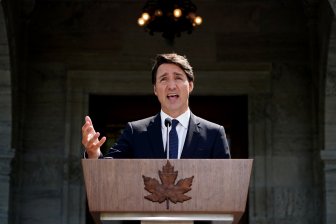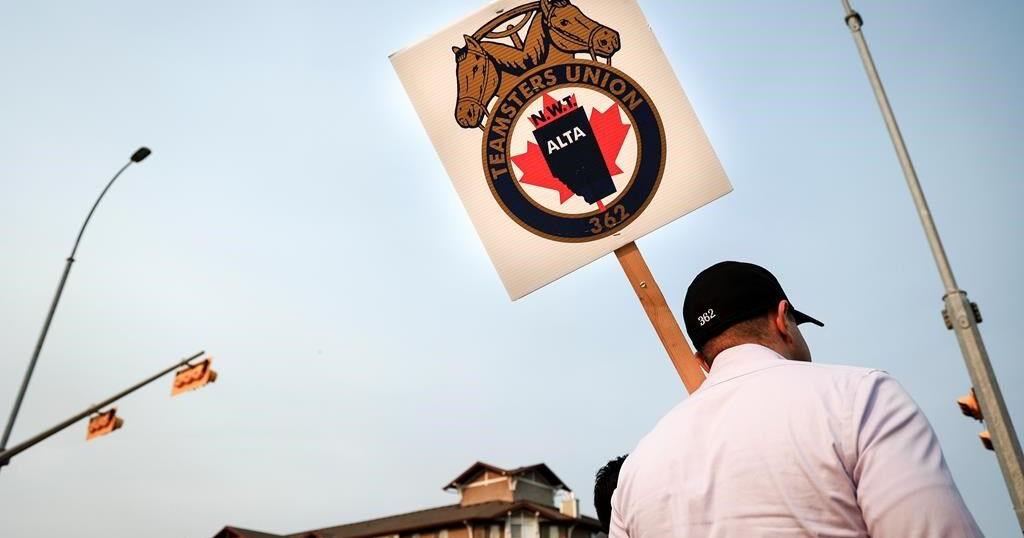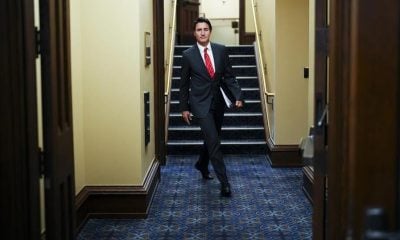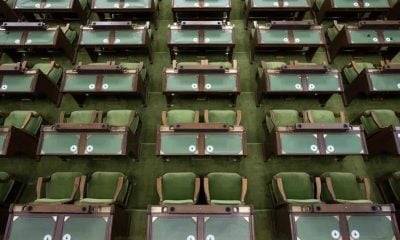In an era of increased strike activity and union power, labour experts say it’s not surprising to see more calls for government intervention in certain sectors like transportation.
What’s new, experts say, is the fact that the government isn’t jumping to enact back-to-work legislation.
Instead, the federal labour minister has recently directed the Canada Industrial Labour Board to intervene in major disputes — though the government was spared the choice of stepping in over a potential strike at Air Canada after a tentative deal was reached on Sunday.
Brock University labour professor Larry Savage says that for decades, companies in federally regulated sectors such as airlines, railways and ports essentially relied on government intervention through back-to-work legislation to end or avoid work stoppages.
“While this helped to avert protracted strikes, it also undermined free and fair collective bargaining. It eroded trust between management and the union over the long term, and it created deep-seated resentment in the workplace,” he argued.
Barry Eidlin calls such intervention a “Canadian tradition.”
“Canadian governments, both federal and provincial, have been amongst the most trigger-happy governments … when it comes to back-to-work legislation,” said Eidlin, an associate professor of sociology at McGill University.
Savage said the use of back-to-work legislation peaked in the 1980s, but its decline since then had less to do with government policy than the fact strikes became less common as unions’ bargaining power softened.
But since the Supreme Court upheld the right to strike in 2015, Savage says the government appears more reluctant to use back-to-work legislation.
Eidlin agrees.
“The bar for infringing on the right to strike by adopting back-to-work legislation got a lot higher,” he said.
However, the experts say the federal government appears to have found a workaround.
In August, Canadian National Railway Co. and Canadian Pacific Kansas City Ltd. locked out more than 9,000 workers — but federal labour minister Steve MacKinnon soon stepped in, asking the Canada Industrial Relations Board to order them to return and order binding arbitration, which it did.
The move by the government — using Section 107 of the Canada Labour Code — is “highly controversial,” said Savage.
Section 107 of the code says the minister “may do such things as to the minister seem likely to maintain or secure industrial peace and to promote conditions favourable to the settlement of industrial disputes or differences and to those ends the minister may refer any question to the board or direct the board to do such things as the minister deems necessary.”
“The reason why it’s a concerning workaround is because there’s no Parliamentary debate. There’s no vote in the House of Commons,” Savage said.
Not long after the rail work stoppage, the government was called upon to intervene in the looming strike by Air Canada pilots. The airline said that a government directive for binding arbitration would be needed if it couldn’t reach a deal ahead of the strike.
However, Prime Minister Justin Trudeau said the government would only intervene if it became clear a negotiated agreement wasn’t possible.
“I know every time there’s a strike, people say, ‘Oh, you’ll get the government to come in and fix it.’ We’re not going to do that,” said Trudeau on Friday.
The airline and the union representing its pilots reached a tentative deal on Sunday.
Though Air Canada was asking for the same treatment as the rail companies, Eidlin said the Liberals appeared to recognize that would have been an unpopular move politically.
Since the rail dispute, the NDP ripped up its agreement to support the minority Liberals, and Eidlin thinks the government’s intervention was one of the reasons for the decision.
“That really left them with this minority government that’s much more fragile. And so I think they have a much more delicate balancing act politically,” he said.
Section 107 was never intended as a way for governments to bypass Parliament and end strikes “simply by sending an email” to the labour board, said David J. Doorey, an associate professor of labour and employment law at York University, in an email.
For the Liberals today, Doorey said using Section 107 to end the rail work stoppage was much simpler than back-to-work legislation — in part because Parliament was not in session, but also because the Liberals hold a minority government and support for back-to-work legislation from the Conservatives and the NDP would be far from guaranteed.
Eidlin is concerned that the government’s use of binding arbitration to end the rail work stoppage could set a precedent similar to what decades of back-to-work legislation did: removing the employer’s incentive to reach a deal in bargaining.
“This has a corrosive effect on collective bargaining,” he said.
The Teamsters union representing railworkers is challenging the government’s move.
The breadth of the government’s power under Section 107 is “something that the courts are going to have to decide,” Eidlin said.
If the courts rule in the government’s favour, the status quo could essentially return to the way it was before 2015, he said.
But Doorey believes the labour minister’s directive to the board to end the rail stoppage will be found to have violated the Charter of Rights and Freedoms.
The rail stoppage wasn’t the first time the federal government used these powers during a recent labour dispute.
When workers at B.C. ports went on strike last summer, then-federal labour minister Seamus O’Regan used the section to direct the board to determine whether a negotiated resolution was possible, and if not, to either impose a new agreement or impose final binding arbitration.
The last few years have really been a litmus test for that 2015 change, Eidlin said, as workers are increasingly unwilling to settle for sub-par collective agreements and employers “still have that back-to-work reflex.”
With an uptick in strike activity, “of course, there will be more interest in government intervention in labour disputes as a result,” said Savage.
This report by The Canadian Press was first published Sept. 16, 2024.
Companies in this story: (TSX:AC, TSX:CNR, TSX:CP)




























